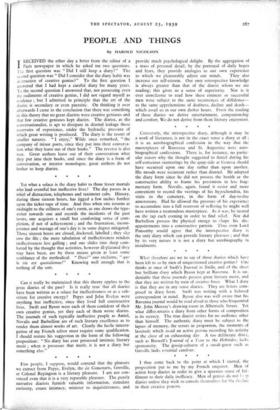What therefore are we to say of those diaries which
have been left to us by men of unquestioned creative genius? One thinks at once of Swift's Puma! to Stella, and of the short but brilliant diary which Byron kept at Ravenna. It is un- deniable that these journals possess great literary merit, and that they are written by men of creative force What I deny is that they are in any sense diaries. They are letters com- posed in diary form. Swift was writing with a beloved correspondent in mind. Byron also was well aware that his Ravenna journal would be read aloud to those who frequented Mr. John Murray's drawing-room in Albemarle Street. Yet what differentiates a diary from other forms of composition is its secrecy. The true diarist writes for no audience other than himself. The authentic diary must be subject to the lapses of memory, the errors in proportion, the moments of lassitude which assail an active person recording his activity at the close of an exhausting day. A too deliberate diary, such as Boswell's Purnal of a Tour to the Hebrides, lacks spontaneity. The gossip-column of a sneak-guest such as Greville lacks essential candour.
* * * *








































 Previous page
Previous page